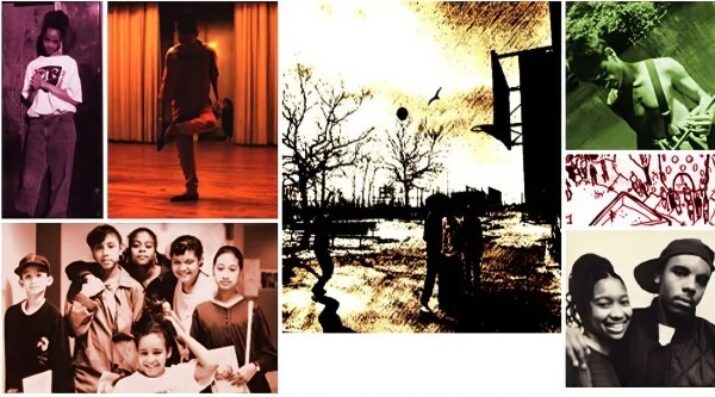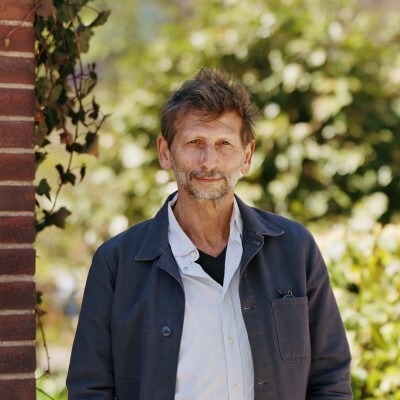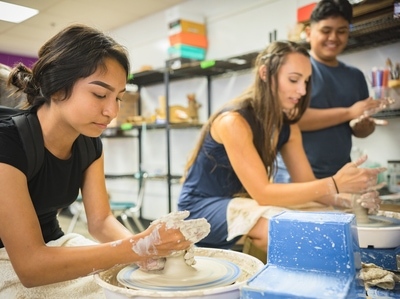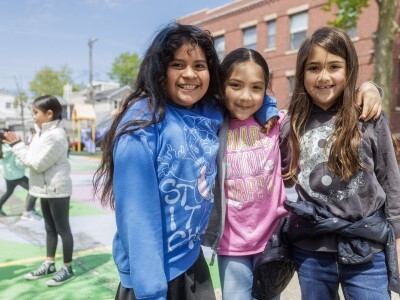A Pedagogy of Belonging: Student Voices 30 Years Later
Topics

Today’s learners face an uncertain present and a rapidly changing future that demand far different skills and knowledge than were needed in the 20th century. We also know so much more about enabling deep, powerful learning than we ever did before. Our collective future depends on how well young people prepare for the challenges and opportunities of 21st-century life.
Listen to former students reflect on their time as teens with a school partnership program, describing the impact it had on their lives.
The opportunity to revisit one's students 28 years later is a privilege very few of us get. Because the work of teaching can often feel like a hail mary. We rarely find out if we had an impact or made a difference. The voices you are about to hear belong to students from the first cohort of Liberty Partnership Program (LPP) aka Liberty Leads at Bank Street College in New York. I was the founding director from 1989-97. Fern Khan was the dean of continuing education and our guardian angel of Liberty. In fall of 2023 I stumbled upon an archive of audio recordings I had done for my dissertation in 1997. I soon realized this was a treasure trove that went beyond my visceral connection to those young people from another time in my life. I eventually reached out to four of the original voices. Only now they are middle aged adults, 47-48 years old reflecting on themselves and the program. Their voices from three decades ago and their voices today are as timely and prescient as a Greek chorus.
Liberty Partnership at Bank Street College
Liberty was, according to the language of its time, an intervention program, college preparatory in scope, for young adolescents (middle school years) from underserved communities. There were 52 such college/school partnerships across the state. Ours created three versions of direct service: a Weekend College, an After School Program, and a Summer Science Camp at Bard College. 38 years and 1700 lives later, it continues to thrive.
Listen to four former students I recorded earlier this year as they describe LPP: “It was everything for everybody.” (13 seconds)
The Weekend College was a Saturday Program, which ran over the course of an entire school year. As such it was a potpourri of experiential, expressive and interactive classes and workshops for approximately 150 6+ graders coming from local public schools. Nothing was compulsory, but students, along with their parents or significant others, signed a contract. In time, kids came from all the boroughs of New York City, more a testament to their resiliency with informal communication pre-internet. We did not give grades but we took attendance and called home if students didn’t show up, to check on them. A parent advisory group was established in our first year. A student council in the second year, after we were threatened with defunding. Along with assorted potlucks and conversations, a web of trust and an internal barometer for success was incrementally forged.
Hear the four adults reflect on what kept them connected and engaged in LPP as teens.
The Weekend College created a carousel of entry points in dance, creative writing, video production, ceramics, painting, drawing, the sciences, and anything else that could awaken curiosity and passion. Everyone did group counseling–our version of morning meetings– facilitated by our educators, artists, and professionals organized around themes and issues that invited young people to engage in probing conversations while learning how to listen to others. There was a learning center, run by a master Bank Street teacher, that comprised tutoring and small group work. And in the afternoon basketball, yoga, and martial arts. Sensei Jose had a cottage industry of kids getting hooked on becoming healthy and responsible.
In the summer, we brought them to Bard College for two intensive and immersive weeks for an environmental science and writing academy. This happened for seven years, eventually with returning high school students becoming counselors.
Their Voices Speak Louder than My Words
I offer these student voices from the past and present not as prescriptions but as an enlarged perspective for thinking of pathways out of the post-pandemic bog of isolation, divisiveness, and disengagement that is overwhelming our students from all demographics. Since mental health and wellbeing belong in the same conversation about learning—all of us need to huddle together to share insights, practices, and frameworks that get it right for students and their teachers.
Their voices highlight three legs of our learning community: relations, aspirations, and experience. Things that all pedagogues, teachers, and parents can understand. We “loved youth into being.” Without the need to either test or control them. By something far more impactful, transformative, and collaborative: We believed in them. We also listened to them. And we co-imagined what was possible.
The following voices represent a small range of those insights that have been categorized into 6 themes: Bonds and Connections, Identity and Labels, Learning and Liberty, Community and Belonging, Hope and Future, Mutuality and Giving Back, Agency and Impact.
Listen to these clips of their voices offering their insights.
What would your students say 30 years later about their learning, their school, their sense of belonging? Would it matter? Might this not be the piece of missing evidence that all our tests and standards cannot convey? A true assessment over time of our efficacy as educators, in the big picture, life.
What we started 38 years ago was both elemental and generative. If you are interested in deeper conversations with the voices, a digital platform is available where all of the recordings sit. We envision the voices, individually and together, deployed as a tool that can spark critical (discerning) and creative (authentic) reflections between students and teachers. Because ultimately, these voices are an echo chamber between the past and the present that amplify why mutual regard, respect, and compassion matters, in healing our schools, our communities, and our lives.
Hear one of the former students suggest how educators and school communities might use the recordings of their voices.
And one last voice: mine. Hear what this project means to me.
Image at top courtesy of the author.




